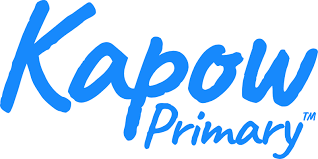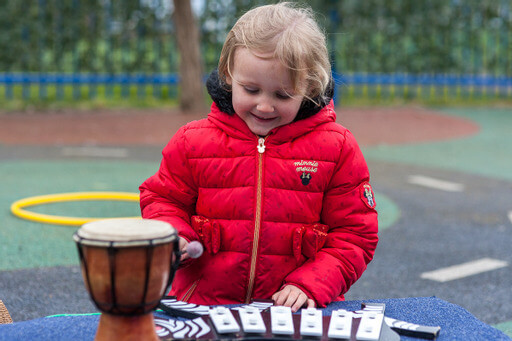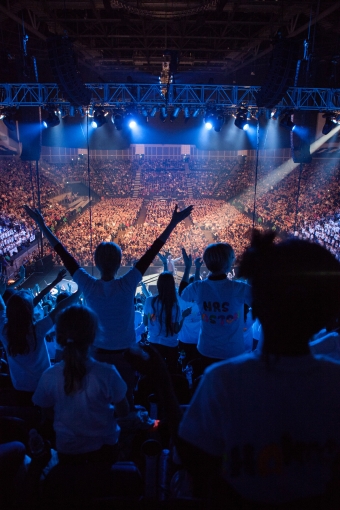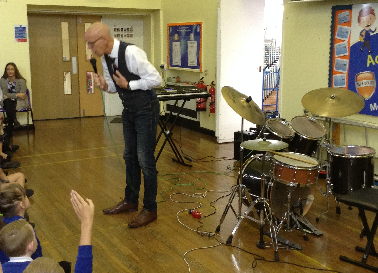
Intent
The aim of music at Moorhill Primary School is to help children feel that they are musical, and develop a life-long love of music. To help us achieve this goal, we make use of the KAPOW music curriculum, focusing on the development of the skills, knowledge and understanding that children need in order to become confident performers, composers and listeners in a wide range of forms. We want children to be exposed to music from around the world and across generations, teaching them to appreciate and respect all traditions and communities and inspire them to continue with their musical knowledge after they leave the gate.
Through the KAPOW music curriculum, children will develop the musical skills of singing, playing tuned and untuned instruments, improvising, composing and responding to music. Kapow’s music scheme of work enables pupils to confidently meet the end of key stage attainment targets outlined in the national curriculum and the aims of the scheme align with those in the national curriculum.
Through music, children at Moorhill will also experience our school values of Ambition, Never Give Up, Teamwork, Love of Learning, Equality and Fairness, Respect, Service (ANTLERS). This is embedded across all musical pathways including extra-curricular activities and music assemblies.
Implementation

Through the successful implementation of Kapow Primary’s music curriculum, we embed the key strands of musical teaching: performing, listening, composing, the history of music, and the interrelated dimensions of music. Over the course of the program, children are taught to sing fluently and expressively, and to play both tuned and untuned instruments with accuracy and control. They learn to recognize and name the interrelated dimensions of music—pitch, duration, tempo, timbre, structure, texture, and dynamics—and confidently use these as part of their musical vocabulary. Music is scheduled for a minimum of 30-45 minutes per week to ensure regular engagement, supporting spaced retrieval and learning processes.
In Years 3 and 4, children have the opportunity to deepen their musical skills by learning to play an instrument through the Entrust Whole School Ensemble scheme. This program allows them to develop mastery of an instrument and perform within the wider community, providing valuable experience in applying their musical knowledge and performing as musicians.
Strong subject knowledge and clarity for staff are imperative to delivering a highly effective and robust music curriculum. With Kapow Primary, each unit includes explicit teacher videos to support subject knowledge acquisition and ongoing professional development, enabling teachers to deliver the music curriculum with confidence and effectiveness. The subject lead has developed a progression document for staff to use in their teaching, ensuring they understand their year group targets and are supported in music assessment.
Kapow Primary also offers guidance and suggestions for adaptive teaching of music in each lesson. This approach aligns with our school improvement plan and ensures that music is accessible to all children.
Additionally, all children have access to Rocksteady lessons, which encourage and enable those with a passion for music to thrive. All KS2 pupils can participate in the choir and take advantage of opportunities such as Christmas performances in the local community and the Young Voices event.
Impact
At Moorhill, children have access to a clearly sequenced music curriculum that fosters creativity and self-expression, supporting our core values of self-belief, teamwork, and ambition. Music education also enhances their understanding of culture, history, and mutual respect.
We measure the impact of our curriculum through several methods:
-
Pupil discussions and interviews about their learning
-
Assessments of standards achieved, judged against the skills and knowledge outlined in our curriculum map, conducted three times per year
-
Evidence of pupils’ work gathered at the end of units
By the time children leave Moorhill, they will be able to play and perform in both solo and ensemble contexts, using their voices and musical instruments with increasing accuracy, fluency, control, and expression. They will have the skills to improvise and compose music for a variety of purposes and to listen with attention to detail. Additionally, they will appreciate and understand a wide range of high-quality music drawn from different traditions and composers.
Learners with Special Educational Needs
At Moorhill, we scaffold and adapt the learning in Music to enable all learners to succeed.
Learning is adapted through:
- Explicit teaching and modelling
- Scaffolded resources
- The use of concrete manipulatives
- Pictorial examples and representations of vocabulary
- Use of technological resources to support learning. For example: sound recording and videoing
- Frequent revisiting of music skills
- Children have the option of wearing ear defenders to support sensory needs
- Adult support



